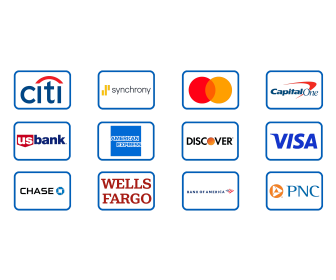The One Credit Card Strategy That Credit Gurus Swear By
There are hundreds of credit card tricks out there — from reward stacking to timing payments — but experts agree there’s one simple, powerful strategy that consistently works for everyone: the “Pay Early, Use Often” method. It’s the approach credit gurus rely on to boost credit scores, avoid interest, and maximize rewards without taking on debt. Here’s how it works and why it’s the foundation of smart credit card management.
1. The Core Idea: Pay Early, Use Often
Most people make one payment per month — on the due date. The “Pay Early, Use Often” strategy flips that idea. You still use your card regularly, but you make small payments throughout the month instead of waiting until the end. Doing this keeps your reported balance low and your utilization ratio strong, both of which are crucial for a high credit score.
- Why it works: Credit bureaus see your balance on your statement closing date, not your due date. Paying early means less debt is reported.
- Result: Lower utilization, stronger credit score, and zero interest owed.
2. The Credit Guru Logic Behind It
Credit experts emphasize that credit scores don’t reward debt — they reward consistency. Paying multiple times a month shows lenders you can manage credit responsibly, and it prevents balances from ballooning. Many high scorers use this system automatically through autopay or scheduled transfers.
- Utilization stays low: Ideally below 10%, which can raise your score by dozens of points.
- Payment history stays perfect: On-time payments make up 35% of your FICO score.
- Interest never builds: Paying before the statement closes eliminates the chance of paying finance charges.
3. How to Put It Into Practice
You don’t need to be a financial pro to follow this strategy. It works for both beginners and experienced cardholders. Here’s how to start implementing it today:
- Step 1: Check your statement closing date in your card app or account dashboard.
- Step 2: Make a small payment right before that date to reduce your reported balance.
- Step 3: Continue using your card normally and pay the full amount by the due date.
Once you get used to it, you can even automate payments every week — treating your card like a debit card but keeping the rewards and protections of credit.
4. Why Gurus Swear By It
This approach creates a perfect feedback loop: your credit score rises, your utilization drops, and you avoid ever paying a cent in interest. Over time, that means better approval odds for premium cards, lower interest rates, and stronger overall financial health.
- Better credit score: Regular payments show stability and reliability.
- More approvals: Issuers love low-utilization applicants.
- Higher limits: Strong habits lead to credit line increases automatically.
5. When It Might Not Work
If you’re carrying existing credit card debt or living paycheck to paycheck, making multiple payments won’t instantly fix your credit. It still takes time and discipline. Focus first on paying off high-interest balances, then transition to the “Pay Early, Use Often” method once your utilization is under control.
- Tip: Even one early payment per month before the statement closes helps reduce reported balances.
- Goal: Keep total utilization under 30% — under 10% for best results.
Expert insight: Credit mastery isn’t about tricks — it’s about timing. The “Pay Early, Use Often” method aligns perfectly with how credit scoring actually works, giving you control over what lenders see without changing your lifestyle.
Final Thoughts
The one credit card strategy that credit gurus swear by isn’t complicated — it’s just consistent. Pay early, pay often, and always pay in full. Over time, those habits transform your credit report, lower your debt ratios, and open the door to better cards, bigger rewards, and long-term financial freedom.
Not financial advice. Credit improvement depends on your full financial picture, including income, debt, and payment consistency. Always review your credit reports regularly and confirm details with your card issuer.



